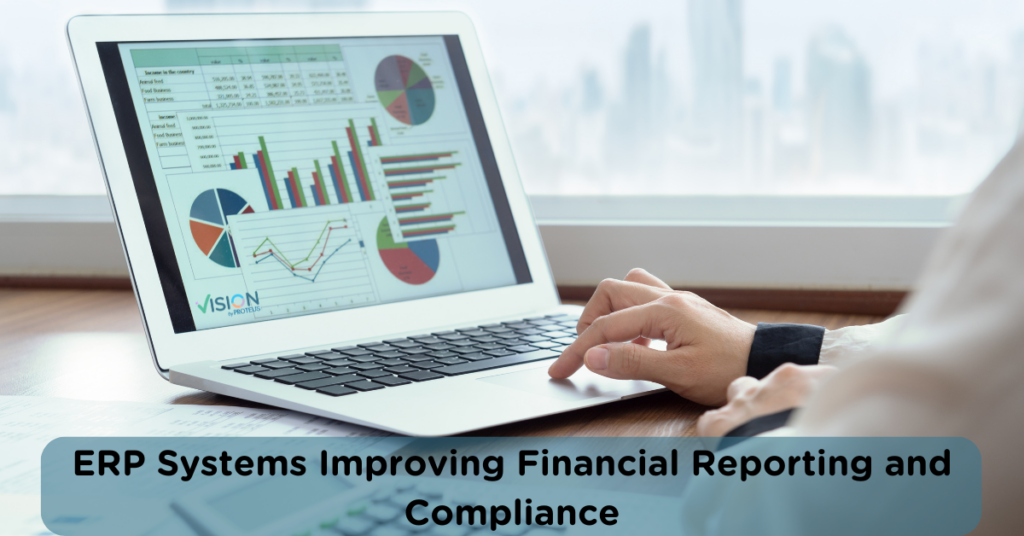
In today’s fast-paced business environment, organizations strive to maintain accurate financial reporting and ensure compliance with various regulatory standards. Enterprise Resource Planning (ERP) systems, particularly Vision ERP, can improve financial reporting and compliance, providing businesses with the tools they need to succeed.
ERP systems automate the invoicing process. This automation generates invoices accurately and promptly after completing shipments on a real-time basis. Timely invoices reduce the payment cycle and encourage customers to make payments on time. Additionally, automation minimizes errors and eliminates delays, leading to a smoother receivables management process. Delivering invoices by email as soon as they are made ensures that customers receive them.
ERP provides real-time reporting features that allow financial managers to generate up-to-the-minute reports. This capability is crucial for making informed decisions and responding promptly to financial issues. With real-time insights, businesses can identify trends, monitor cash flow, and evaluate financial performance with greater accuracy.
Keeping up with ever-changing regulatory requirements can be challenging. ERP helps businesses stay compliant by offering built-in compliance features. These features include automated compliance checks, alerts for regulatory changes, and tools for tracking compliance-related activities. ERP ensures that businesses adhere to local and international regulations without the hassle of manual monitoring.
ERP enhances transparency by maintaining detailed audit trails of all financial transactions. These audit trails provide a clear record of who did what and when, which is essential for both internal and external audits. By having a transparent system, businesses can easily identify discrepancies and address compliance issues before they escalate.
ERP is designed to grow with your business. Its scalable architecture accommodates the increasing complexity and volume of data as your organization expands. The flexibility of Vision ERP allows businesses to customize modules and features according to their specific needs, ensuring that the system remains relevant and effective.
One of the primary advantages of an ERP system is its ability to consolidate customer data from multiple departments, such as sales, finance, and customer service. By centralizing all relevant information, businesses gain a 360-degree view of each customer’s transactions, payment history, credit limit, and outstanding balances. This enables better credit risk assessment and helps identify customers requiring proactive credit management strategies to minimize the risk of bad debts.
Ensuring customers are defined properly without any duplicates is crucial. An automated workflow must review customer information by the right team. In many instances, the same customer having multiple branches requires a separate code in ERP. Creating correct mapping ensures visibility and benefits from implementing an ERP.
ERP is a powerful tool that significantly improves financial reporting and compliance for businesses. By automating data collection, providing real-time reporting, and ensuring regulatory compliance, Vision ERP enhances accuracy, efficiency, and transparency. Embracing Vision ERP is not just a technological upgrade; it is a strategic move toward sustainable growth and success.